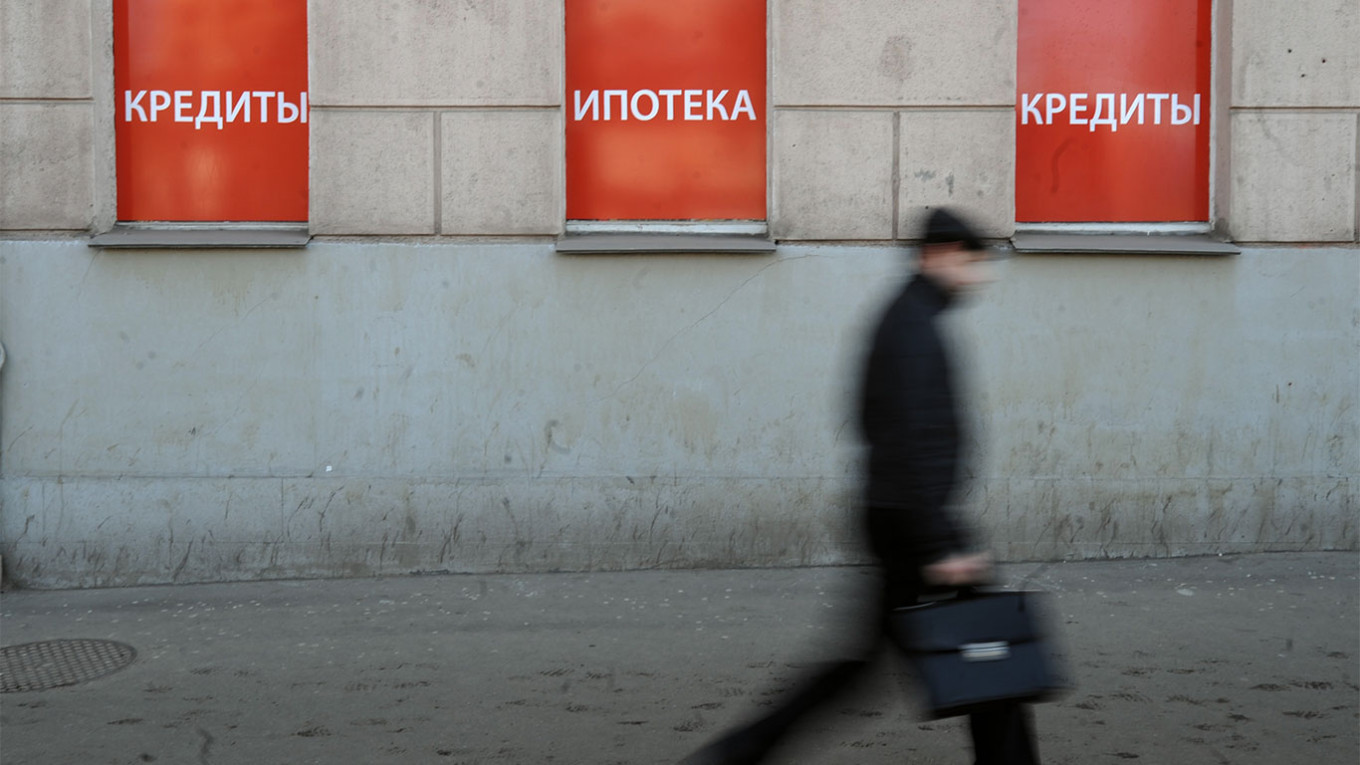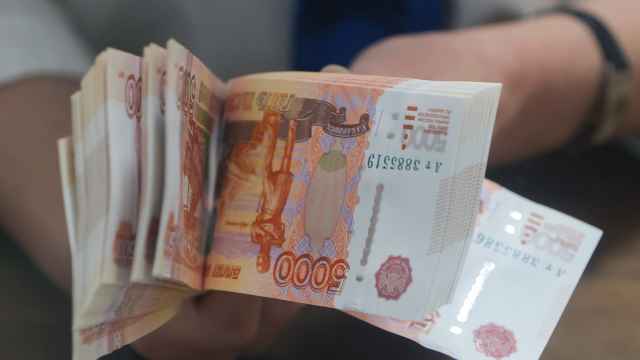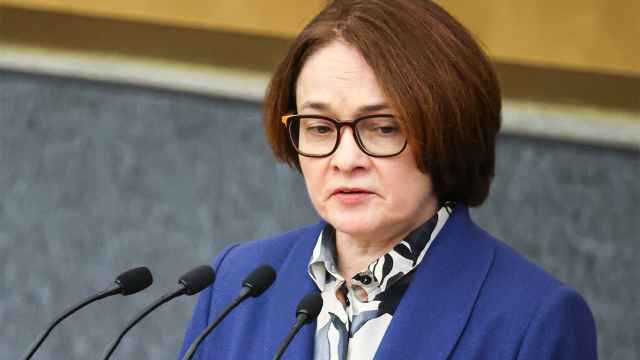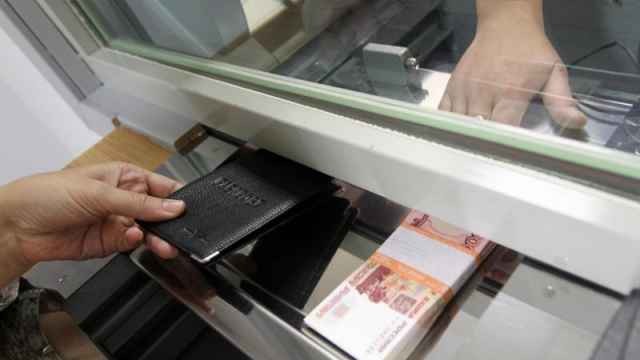Russia’s credit market expanded by 1.7 trillion rubles ($21.2 billion) in July, reaching nearly 150 trillion rubles in total outstanding debt, the Central Bank has reported.
But the annual growth rate slowed to 10.1% from 10.7% in June — its weakest pace since early 2021.
The regulator described retail lending as “weak” and corporate lending as “moderate,” attributing the slowdown to its tight monetary policy.
While credit is still up 10% from a year ago, much of that growth reflects last year’s lending boom. So far in 2025, lending has increased by only 4.1%.
The Central Bank’s figures cover all bank claims on companies and households — including loans, bonds and promissory notes — and are adjusted to exclude distortions from securitization.
In July, banks packaged portions of their mortgage portfolios into bond obligations, which reduced the share of household lending in money supply growth.
Household credit made a negative contribution to the annual expansion of money supply for the first time since late 2016.
Overall retail lending contracted slightly, falling by 100 billion rubles to 38.8 trillion rubles by Aug. 1, down 0.9% year on year.
“Households in July primarily repaid earlier obligations and showed little appetite for new borrowing,” the Central Bank said.
By contrast, corporate lending grew by 1.6% in July, helping to drive a 1.1% rise in total credit.
Corporate borrowing picked up in response to an easing in monetary conditions, said economist Yegor Susin, who noted that this revival contributed to faster money supply growth.
Budget spending, however, has not yet played a significant role, analysts at Tverdye Tsifry (Hard Numbers) wrote.
The Central Bank’s survey of more than 10,000 companies showed that while credit conditions remain tight, signs of improvement have appeared.
A growing share of businesses reported some easing in access to credit.
Still, many firms continue to cite a lack of working capital as a constraint, and high interest rates are keeping demand for loans from small and medium-sized businesses at extremely low levels.
The regulator expects lending to slow further over the remainder of the year, projecting overall credit growth of 7 to 10% in 2025.
Corporate portfolios are expected to expand by 9 to 12%, while retail lending is forecast to grow by only 1 to 4%, including a 3 to 6% increase in mortgages.
A Message from The Moscow Times:
Dear readers,
We are facing unprecedented challenges. Russia's Prosecutor General's Office has designated The Moscow Times as an "undesirable" organization, criminalizing our work and putting our staff at risk of prosecution. This follows our earlier unjust labeling as a "foreign agent."
These actions are direct attempts to silence independent journalism in Russia. The authorities claim our work "discredits the decisions of the Russian leadership." We see things differently: we strive to provide accurate, unbiased reporting on Russia.
We, the journalists of The Moscow Times, refuse to be silenced. But to continue our work, we need your help.
Your support, no matter how small, makes a world of difference. If you can, please support us monthly starting from just $2. It's quick to set up, and every contribution makes a significant impact.
By supporting The Moscow Times, you're defending open, independent journalism in the face of repression. Thank you for standing with us.
Remind me later.






